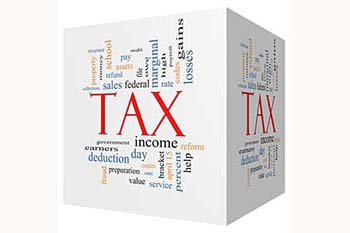CLE Presentation by Shamsey Oloko
Interest on Home Equity Loans Often Still Deductible Under new Law
Interest on Home Equity Loans Still Deductible Under New Law
The Internal Revenue Service today advised taxpayers that in many cases they can continue to deduct interest paid on home equity loans.
Responding to many questions received from taxpayers and tax professionals, the IRS said that despite newly-enacted restrictions on home mortgages, taxpayers can often still deduct interest on a home equity loan, home equity line of credit (HELOC) or second mortgage, regardless of how the loan is labelled. The Tax Cuts and Jobs Act of 2017, enacted Dec. 22, suspends from 2018 until 2026 the deduction for interest paid on home equity loans and lines of credit, unless they are used to buy, build or substantially improve the taxpayer’s home that secures the loan.
OF SALT, TAXES & MORTGAGES…
OF SALT, TAXES AND MORTGAGES…
Do you pay State and Local Taxes (SALT)? If you live in any of New York, California, New Jersey, Connecticut, or any other of the so-called high-tax states, you likely pay more than the national average in SALT. Prior to 2018, you were allowed to itemize all of your SALT payments on your federal tax returns. However, the recently passed law, the Tax Cuts and Jobs Act, curbs the deductibility and otherwise affects you disproportionately, compared with the rest of the country. The changes to the deduction of State and Local Taxes (SALT) on federal tax returns are generally as follows
Getting a New Car for Business? Buy or Lease? Part 2: Tax Consequences
This blog will address the tax consequences of both leased and owned vehicles used for business purposes. Hopefully, it will offer some insight into the decision as to what is best for your business: buying or leasing?
With both owned and leased cars, any related expenses may be deducted using the standard mileage rate or the total amount of actual expenses. If the vehicle is owned, you may choose the standard mileage rate in the first year and switch to the actual expense method in a later tax year. If a vehicle is leased, you may also choose the standard mileage rate in the first year but once you the standard mileage rate is chosen, it must be used for the life of the lease.
Most Confusing Parts Of The Income Tax Code, Part 2: Alternative Minimum Tax
Many provisions of the Internal Revenue Code are complicated. Proper interpretation of the rules and regulations contained in these provisions requires the assistance of an experienced and knowledgeable tax professional. The second part of our series about the most confusing provisions of the Internal Revenue Code addresses everyone’s favorite, the alternative minimum tax.
Why Is It Confusing?
- The AMT doesn’t seem to achieve its purpose
- Taxpayers have to compute two taxes
- The computation of the AMT itself is enormously long and complicated
Tax Treatment Of Lease Terms Part 2: Tenant Allowances
Tenant construction allowances are a common detail in commercial real estate leases. Because landlords need tenants to fill their commercial spaces, and tenants need to customize these spaces for their business, a tenant allowance is a vital lease term which significantly pushes forward and finalizes a commercial real estate leasing transaction. An allowance must be structured accordingly to avoid undesired tax consequences.
I.R.C. § 110 provides landlords and tenants with a safe harbor which ensures that a tenant is not required to recognize income for a tenant allowance in leases which are for 15 years or less of a retail space. Otherwise, the tenant treats a tenant allowance received from the landlord as ordinary income, while depreciating assets over their useful life, typically resulting in much more income than expenses.
What Is Foreign Earned Income? Am I Eligible to Claim Either the Exclusion Or Deduction?
Individuals that are U.S. citizens or resident aliens of the United States living abroad are taxed on their income by more than one governmental entity. However, these taxpayers may qualify to exclude from their income an amount of their foreign earnings (adjusted annually for inflation) under I.R.C. § 911. They may also be eligible for either a foreign housing exclusion or the foreign housing deduction (this will be discussed in a future blog). To determine eligibility to claim either the foreign earned income exclusion, the foreign earned housing deduction or foreign earned housing exclusion, please consider the following analysis. Remember, that an experienced tax professional can offer assistance in making this analysis.
A Discussion Of New York State Income Tax Credits
Individuals and businesses in the State of New York are both subject to income tax. New York enacted a sweeping tax-reduction bill in 2011, creating the lowest mid-bracket tax rates in the state in 58 years. These tax breaks affected over four million taxpayers. Despite this legislation and other New York tax breaks, New York still has one of the highest state income tax rates in the nation.
New York Personal Income Tax
A Discussion Of New York State Income Tax Deductions
Income tax deductions are expenses that may be deducted from pre-tax gross income. Of course, deductions reduce New York income tax and maximize a refund. One of the experienced tax professionals at the Thorgood Law Firm can assist any New Yorker in determining the deductions for which they qualify under New York law.
New York has a standard state income tax deduction. For 2015, they are as follows:
| Filing Status | Amount of Standard Deduction |
| Single (and can be claimed as a dependent on another taxpayer’s federal return) | $3,100 |
The Most Overlooked Tax Deductions, Part 5
Many taxpayers overlook the long list of deductions that they may take when completing and filing their tax returns. The tax professionals at the Thorgood Law Firm can help ensure that all taxpayers take advantage of any and all deductions that may apply to them. Here is the fifth part of our multi-part blog on the most overlooked tax deductions:
LEGAL INCOME & FEES AS DEDUCTIONS
Jury pay paid to employer


